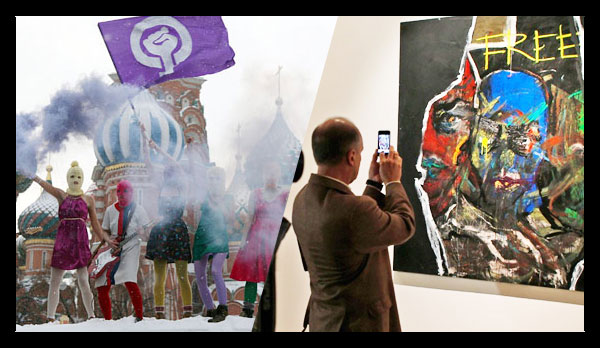Ian Alan Paul is an artist and theorist living in the Bay Area of California. His current research focuses on feminist and poststructuralist critiques of human rights discourses. He is currently a lecturer at UC San Diego. He received his MFA and MA at the San Francisco Art Institute in 2011 and is in the process of completing his PhD studies in UC Santa Cruz’s Film and Digital Media program. He can be reached at ianalanpaul@gmail.com
I would like to begin by asserting this counterintuitive formulation: resistance always precedes power. This is not meant to establish a hierarchy between the two, but rather to remind us that power is never already-existing but instead is always reactive and deeply entangled with resistance. In this way, power can only manifest to discipline, contain, and capture the ongoing productive and creative capacities of the multitude itself. I think this is a generative way to begin thinking through these problems, because it allows us to think of both resistance and power, as well as escape and capture, as constitutive elements in an ongoing process of struggle without definite horizons or closures.
Escape (and nomadism) has been a popular trope in the global radical left over the last couple of decades, and it has generated useful experiences and praxis in relation to the fight against global capital. I think it is now time to theorize and experiment with the process of inevitable capture which is always embedded in the process of escape itself. It’s not a question of if we will ever truly escape the art world, or whether we will be wholly consumed and captured by it, but rather how we imagine ourselves escaping and being captured in more liberatory and emancipatory ways.
There are several methods of tactically approaching these questions. Perhaps the first intervention would be to insist that both escape and capture must be *collective* projects. Neoliberal forms of capitalist organization are perfectly comfortable with individuals fleeing its structures and institutions (in many ways, neoliberalism depends on large portions of the population being extraneous to its productive elements). However, collective practices of escape such as the general strike or the development of autonomous spaces for escapees to flee to are not so easily digested by the contemporary systems of power. Similarly, the process of capture must be organized to be a collective and resistant process. When the dominant institutions do decide to attempt to recuperate the activities of the escapees, there must be a struggle to force the institution itself to transform and mutate to accommodate the capture, and not the other way around. This means there must be a constant effort to maintain a criminal relationship with these institutions, in the sense that access to their resources must be made available to those outside of their enclosures. Another technique of collectivizing the process of capture is to be found in forging antagonistic solidarities within the institutions themselves (between janitors and curators, for example) in ways that challenge the function, logic, and structure of the institutions.
These are simply meant to be illustrative of the potentials of thinking through this framework of escape and capture, and aren’t meant to be exhaustive of the many possible routes to resistance. I think that in insisting that we are always engaged in both escaping and being captured, and that escape and capture are just two different trajectories of a singular process, we can shove off binary approaches to struggle (such as the Gramscian distinction between active and passive revolution, or the ultra-leftist dichotomy between spontaneity and organization) and instead think tactically and contextually to maximize our leverage and capacity to rupture existing power relations. This will involve collective forms of risk taking, research, and experimentation in an attempt to draw the maps and routes of both escape and capture. Both escape and capture must be practiced in ways that allow for novel forms of resistant subjectivity to unfold (or even radical processes of desubjectivication), must challenge neoliberal forms of value that insist upon capitalist mechanisms of calculation and numeration take precedent over other more ethical aesthetic regimes, and must proliferate radical democracy and expand upon (and at times, defend) the common.
Related Readings:
Breaching the foreclosure of Critique (my critical response to “An Open Letter to Critics Writing About Political Art): http://artthreat.net/2012/11/breaching-the-foreclosure-of-critique/
Commonwealth (Michael Hardt and Antonio Negri): http://ebookbrowse.com/gdoc.php?id=77529901&url=15c0c1f985a11a31cf57fb1d5e134be4
Escape Routes: Control and Subversion in the 21st Century (Dimitris Papadopoulos, Niamh Stephenson & Vassilis Tsianos): http://www.darkmatter101.org/site/2010/04/21/escape-routes-control-and-subversion-in-the-21st-century/

